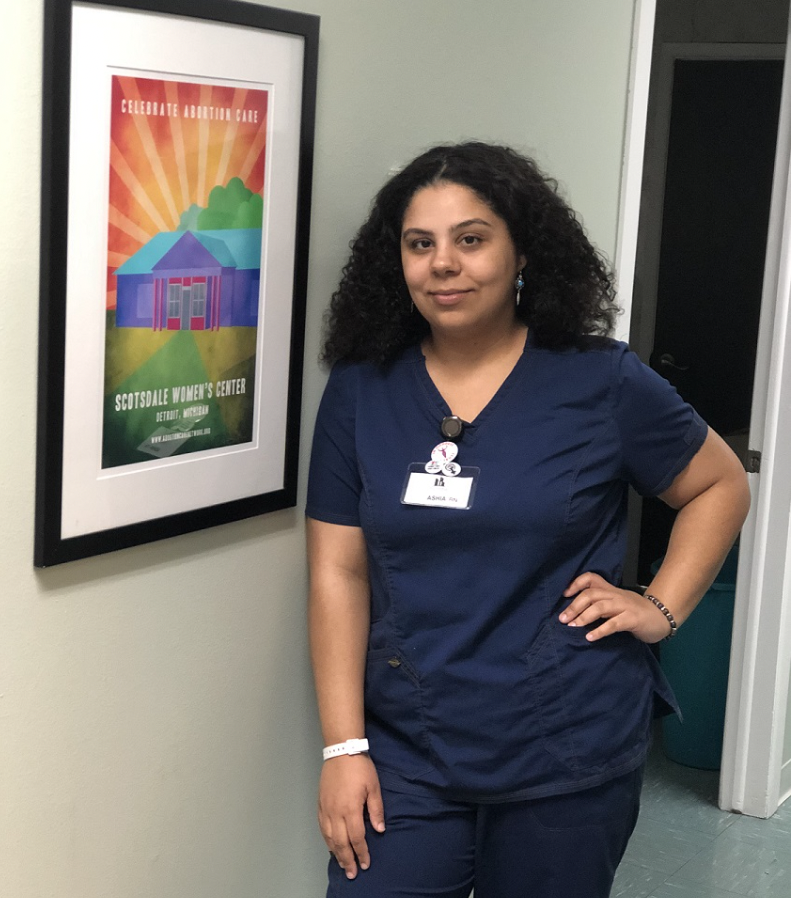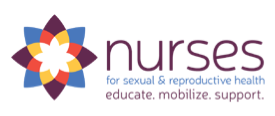From Patient to Abortion Equity Provider
Tell us about your decision to become an abortion provider: How did you end up in this role?
My journey to becoming an abortion provider started with my own abortion story. I was raised in a Catholic household, went to Catholic school, and at an early age was taught that abortion was a selfish and evil act. In high school, I transitioned from private to public school. At 17, I started working as a medical assistant for a family and internal medicine practice. At 19, I became pregnant with my first child and had a very difficult labor that ended in an emergency C-section. My son was born, and my life changed overnight. A year later, I became pregnant again. I immediately knew I didn’t want to be pregnant; I didn’t want to risk another C-section; I didn’t want to have another baby at that time. I realized everything I was taught about abortion was wrong. I knew having an abortion was the best decision for myself and my family. I made an appointment with an abortion provider near my home and had my first abortion on my 21st birthday. At my appointment, I remember feeling so thankful to have the service available to me, and when it was finished, I felt so relieved. After my birth and abortion experience, I knew I wanted to work in sexual and reproductive health. In 2013, I was hired as a clinical assistant at Scotsdale Women’s Center, an independent abortion clinic in Detroit. In 2014, I gave birth to my daughter, and the next year I had my 2nd abortion. At the clinic, I worked my way up to a leadership position and also became a Registered Nurse. Now I am a manager at Scotsdale Women’s Center, a staff nurse on Labor and Delivery, a board member of the Abortion Care Network, and co-leader for the Michigan cluster of the Reproductive Health Access project.

What is your day-to-day like in your job?
At the clinic, it is my job to ensure every patient is prepared for their medical or surgical abortion. I am also responsible for ensuring patient safety. I perform assessments, ultrasounds, lab testing, administer medications, and I counsel patients. I am knowledgeable and efficient in all clinic areas, and I am able to step in wherever needed. I help supervise and teach staff, and I also help create and update clinic policies and procedures. At a hospital in the same community, I work on labor and delivery. There I care for pregnant people during labor and birth, and I also provide newborn and postpartum care.
How has your work changed during the pandemic?
Work during the pandemic in general has been different. It has been stressful, scary, enlightening, productive, and grounding all at the same time. In the beginning, resources were critically low, and there were so many unknowns; everyone was paranoid about getting sick. In worst cases, some states tried to block abortion access, and some clinics had to close. Social distancing has been a big change because we are so used to holding hands, sharing hugs and wiping tears. On a positive note, even with all the changes and fear, we were still able to provide exceptional abortion care to patients in the midst of a global pandemic. COVID-19 really showed me how resilient and dedicated abortion providers are. When faced with adversity, abortion providers are leaders and innovators who are capable of all things.
What are some things you’ve learned in your line of work?
During my career I’ve learned that everyone is on a different but important life path. Bodily autonomy and reproductive justice are essential for individuals and communities to heal, thrive, and be healthy. Spiritually, my career has affirmed my belief that birth and abortion are normal cycles of life. I believe there are diverse levels of consciousness, and life continues after physical death. Energy doesn’t die, it transforms. When we experience physical death, we transform into a higher level of consciousness, free of ego, pain, fear and despair.
What do you love about being involved in this kind of work and activism?
What I love most about being involved in this work and activism is the validation it provides. I feel a strong sense of community service and social justice. Everyday at work I feel like I’m helping make a difference in someone’s life. Every patient I care for is special and important, and they all have their own story. It is an honor and privilege to care for people during some of their most sacred and vulnerable experiences.
What does equity in abortion care mean to you?
To me equity in abortion care means intentional, intersectional and accurate representation and support for pregnant people in need of abortion care. With special recognition and resources for underserved groups and communities.
How do you take care of yourself/practice self-care?
Nurses are known for putting the needs of others before our own. There is no doubt self-care has been a challenge for me over the years, but I am getting better at making time and space for myself. I realize I am not able to help others well if I am physically or mentally breaking down. I find that staying hydrated, getting adequate rest and laughter helps me feel calmer and less stressed. I also enjoy being outdoors, meditating and breathing fresh air, it helps me relax.
Do you have a story to tell?We welcome you to submit your story or blog idea to us so we can feature you in our newsletter or on our blog. Email us at [email protected] or message us on social media @NursesforSRH.
